

Fumio Hara
Movies for Fumio Hara...
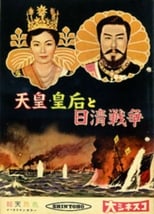
Title: Emperor & Empress Meiji and the Sino-Japanese War
Released: March 14, 1958
Type: Movie

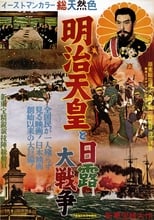
Title: Emperor Meiji and the Great Russo-Japanese War
Character: Foreign Minister Komura
Released: April 29, 1957
Type: Movie
Meiji Tenno portrays the buildup to the Russo-Japan War. In addition to showing the political events that led to war, it also shows the era from the story of a farm family in rural Japan that sends their son off to war. As such, it could be considered an anti-war movie, showing how, while war is devised by governments, the people do not really understand what war is, and its combatants often do not know what they are fighting for.

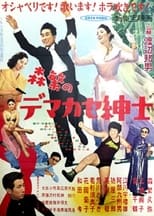
Title: Morishige no demakase shinshi
Released: September 6, 1955
Type: Movie
Scammer Horikawa Shinbei hopes to make a quick buck using Namie, a stripper under his control.

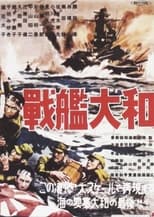
Title: The Battleship Yamato
Released: June 15, 1953
Type: Movie
The film is about the Yamato's suicide mission to Okinawa in March 1945 to defend the homeland threatened by U.S. bombers. Adapted from Mitsuru Yoshida's 1952 book "Requiem for the Battleship Yamato".


Title: Geisha Waltz
Released: October 2, 1952
Type: Movie
1952 Japanese film directed by Kunio Watanabe.

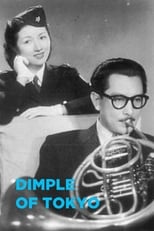
Title: Dimple of Tokyo
Released: July 15, 1952
Type: Movie
Buntaro, the president of a food trading company got tired of the day-to-day routine of life. The new secretary, Nobuko, suggested her "shacho-san" (the president) run away from the job. Nobuko took Buntaro to her home and introduced him to her own family as friend, "Sachio-san"...


Title: Amakara chindōchū
Released: November 11, 1950
Type: Movie
Kotaro Shimoyama, once a government official, loses his job and separates from his wife, Sachie. He now resides with his daughter, Haruko. By chance, he apprehends a criminal and reconnects with his former colleague, Sakamoto, leading him to become a security guard at a film studio. Haruko, secretly a singer, rises to stardom within the same studio. Unbeknownst to each other, they both work there. As the studio faces turmoil, their hidden identities are unveiled...

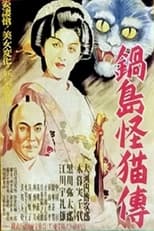
Title: Ghost Cat of Nabeshima
Released: August 23, 1949
Type: Movie
Tanuma Kandayuu is a high class samurai of the house of Nabeshima. He finds a lavish board of Go (a Chinese Board game) at Kinbei's store. He recommend Kinbei to offer it to his lord. Kinbei hesitates at first, since he knows the board has a mysterious legend surrounding it; it's believed that for every game played on the board, one death is required.

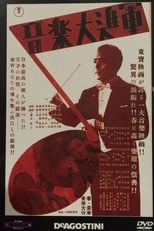
Title: 音楽大進軍
Character: Publicist Nakakura
Released: March 18, 1943
Type: Movie
A 1943 film.


Title: Song of the White Orchid
Released: November 30, 1939
Type: Movie
Song of the White Orchid was a co-production of Toho and Mantetsu, the railway that served the colonial region of Manchuria, and the first film in the Kazuo Hasegawa/Shirley Yamaguchi (Ri Koran) “Continental Trilogy.” Handsome Hasegawa (representing Japan) runs up against an impertinent Yamaguchi (representing the continent); not surprisingly, in the course of the film the woman comes around and realizes the benevolent intentions of the Japanese. In Song of the White Orchid Yamaguchi leaves Hasegawa, who plays an expatriate working for the railway, because of a misunderstanding. She joins a communist guerilla group plotting to blow up the Manchurian railway. Learning of the subterfuge that led to the misunderstanding, she renews her faith in Hasegawa—and by extension Japan—and tries to undermine the plot.
